You might not think that a police officer is an entry-level job, but with less competition in the field and the right combination of skills and interests, you stand a good chance of being hired as a police officer. A police officer resume will be your first impression on potential employers, so it needs to be as strong as possible. Therefore, it’s essential to have an up-to-date overview ready for any job search. Read on for sample resumes for a police officer that can help you land more interviews. We live in dangerous times—which means there are plenty of opportunities to become a police officer. Aspiring officers need to meet specific physical and mental standards, which is why most departments require applicants to complete a series of tests before joining the force. Becoming one also requires meeting specific educational criteria and passing drug tests and background checks. Here are some valuable tips on crafting an excellent resume if you want to become a police officer.
Police Officer Resume Example

Download This Police Officer Resume as PDF
Deputy Police Chief Resume Example
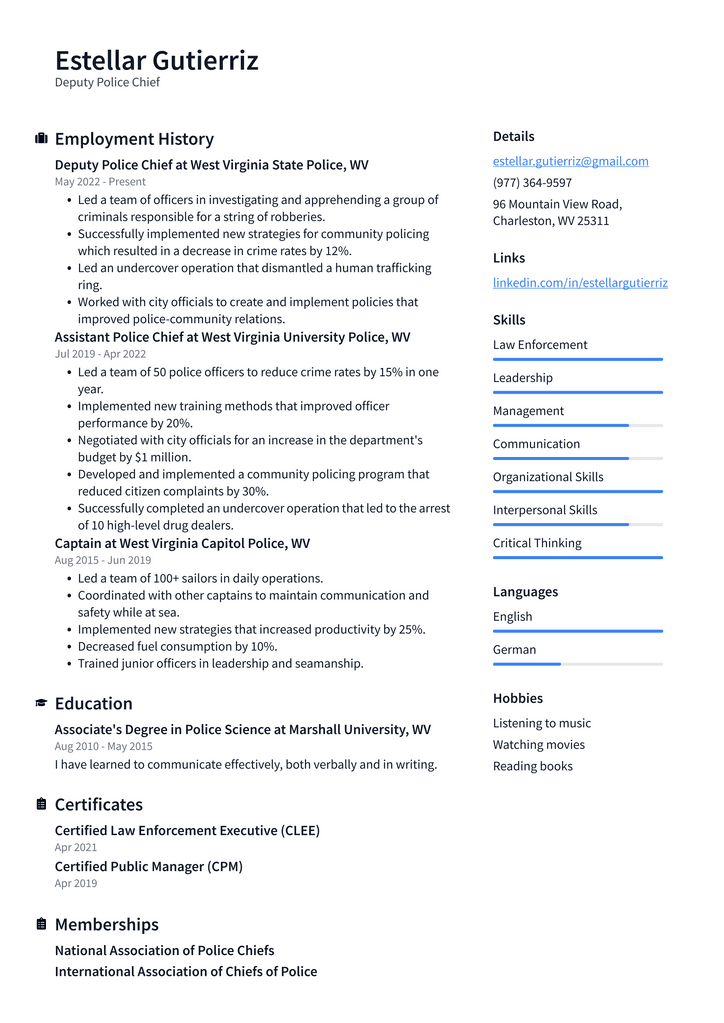
Download This Deputy Police Chief Resume as PDF
Police Lieutenant Resume Example
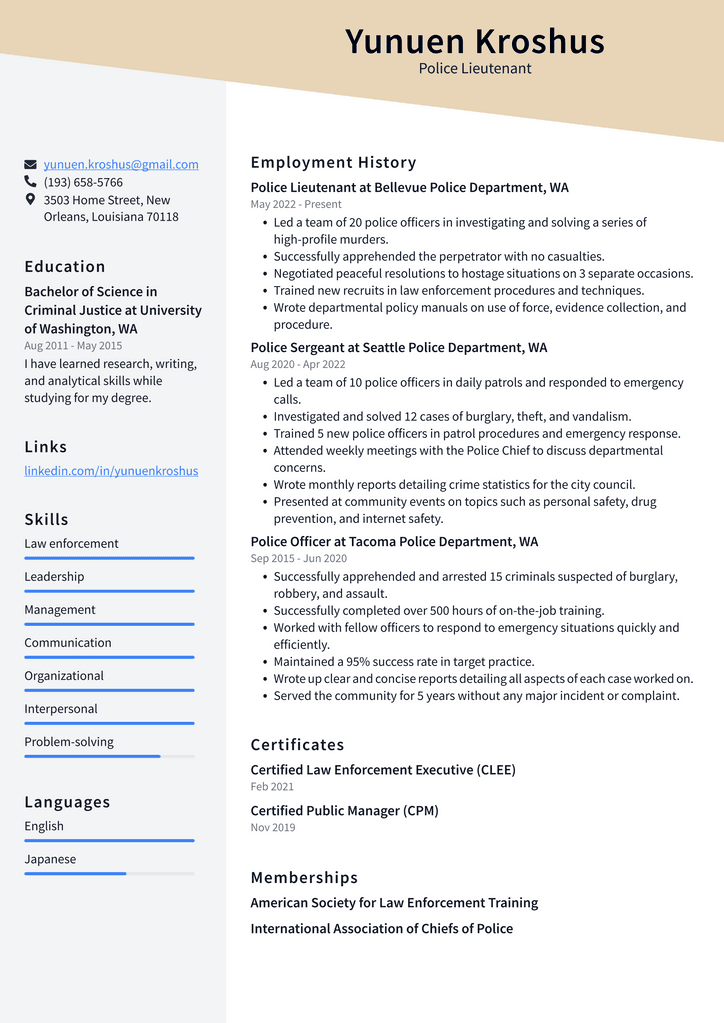
Download This Police Lieutenant Resume as PDF
Police Sergeant Resume Example
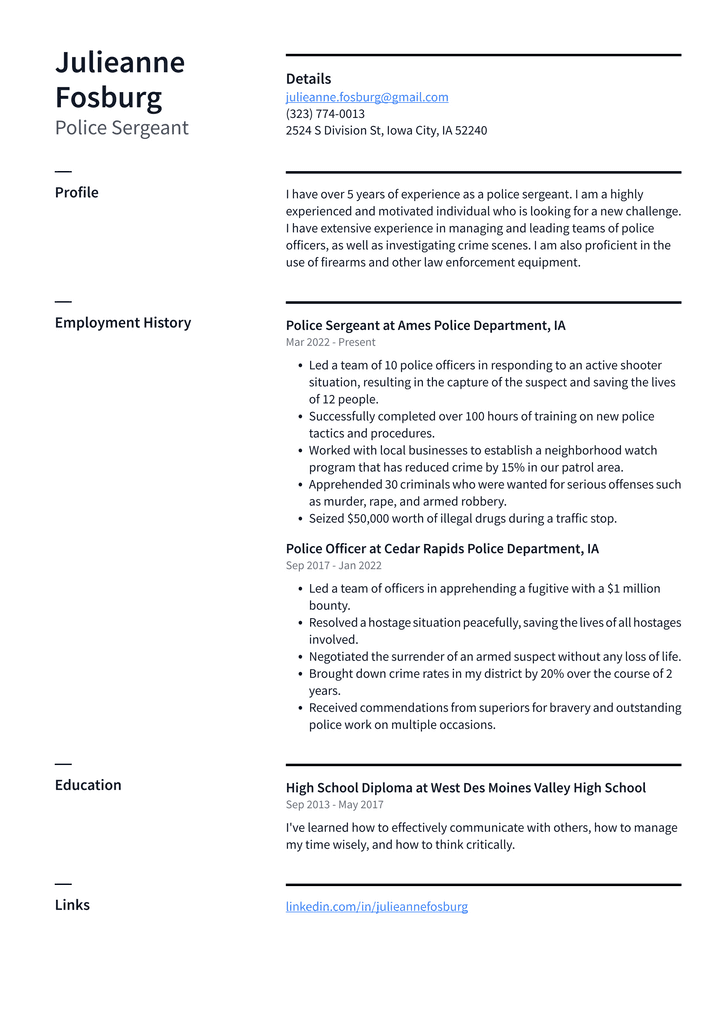
Download This Police Sergeant Resume as PDF
Police Captain Resume Example
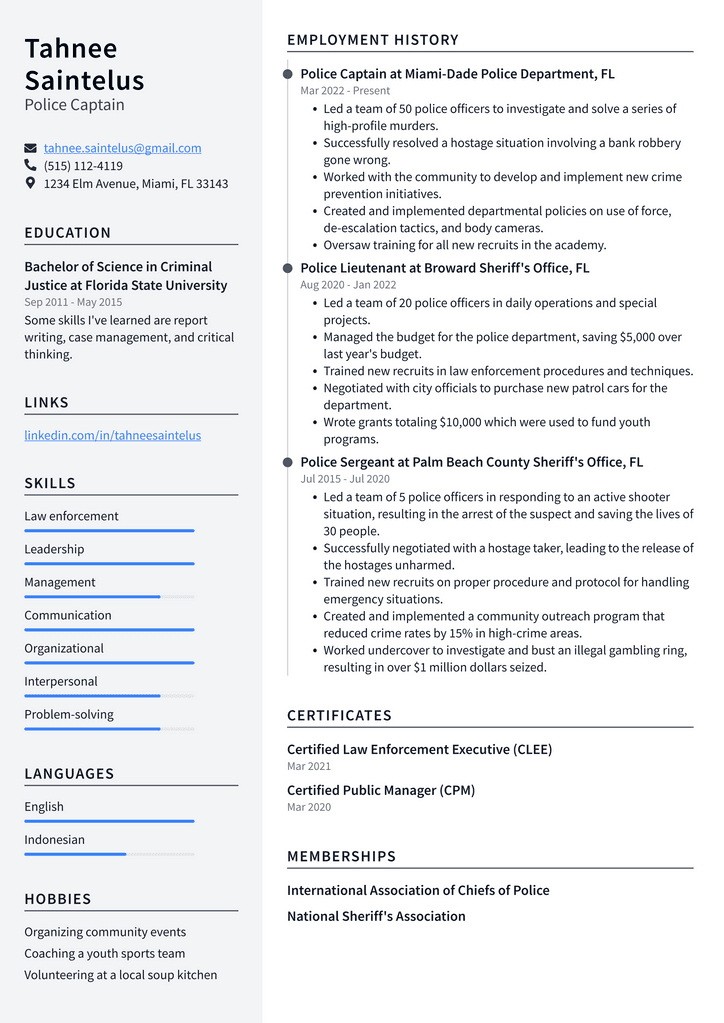
Download This Police Captain Resume as PDF
Police Chief Resume Example
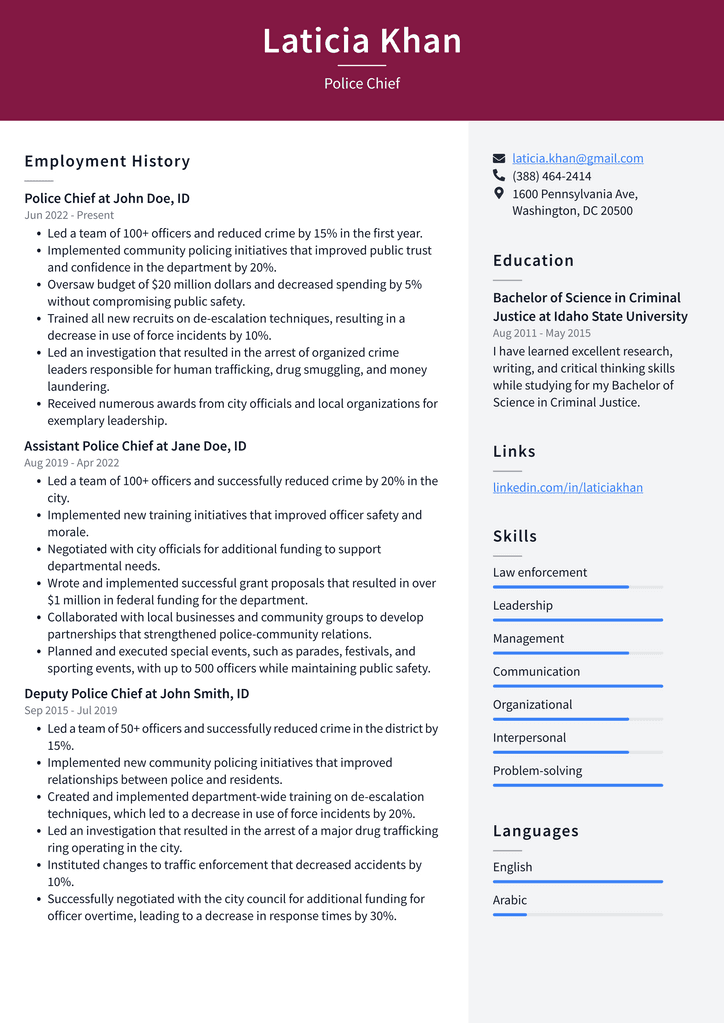
Download This Police Chief Resume as PDF
Assistant Police Chief Resume Example
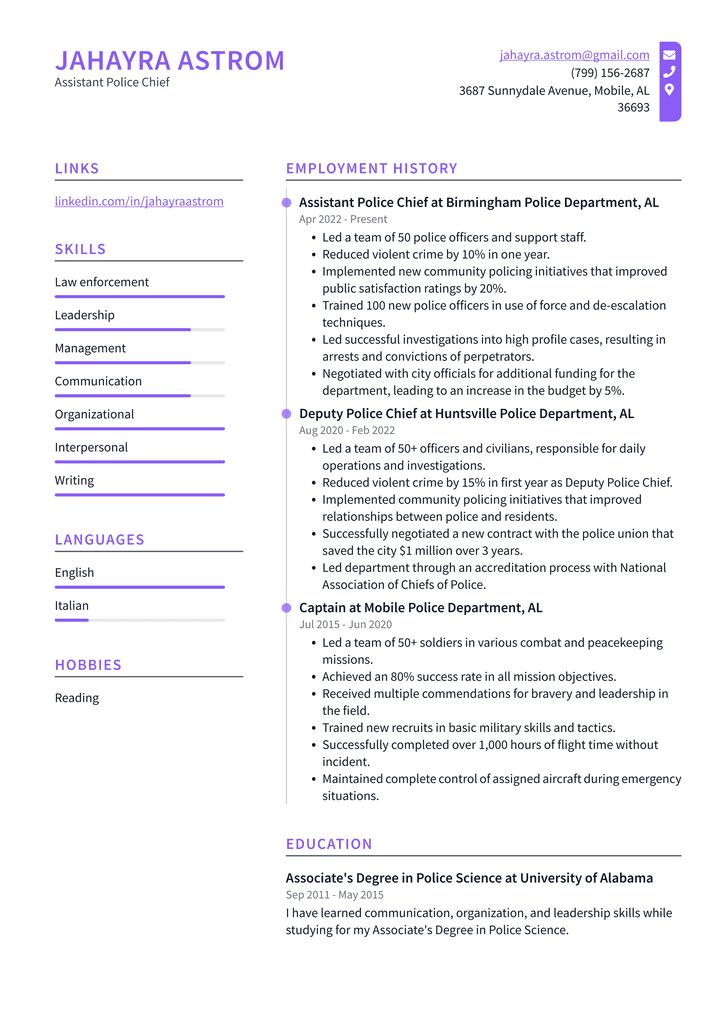
Download This Assistant Police Chief Resume as PDF
Create a Summary Or Highlights Section
If you’re applying for a specialized position – like detective or SWAT team member, for example – you may be asked to include a summary section at the top of your resume. This is optional for most positions, but if you want to highlight unique skills or qualifications, this is the perfect place to do so. Likewise, if you’re applying for an available job, you can use the summary section to describe your career goals and include a brief overview of your skills to help you reach those goals.
Use Strong Action Verbs
When listing your duties as an officer, you’ll want to avoid vague terminology. Instead, use action verbs like “regulated” instead of “regulated the traffic” or “affirmed,” instead of “affirmed the validity” of something. This will make it clear to hiring managers that you know exactly what you’re doing, and you’re doing it well. Using strong action verbs in any sections of your resume where you’re describing skills is also a good idea. Again, this will show hiring managers that you’re experienced and have the drive to succeed in your career.
Include Key Skills
If you performed specific tasks as an officer or specialized in certain areas, you may be able to put those skills or spots on your resume. For example, if you put out fires for your department, include “Firefighting” as a skill. If you were managing a team, include “Management” as a skill. If you were in charge of managing a team but also specialized in handling a particular type of crime, you can include that as well: “Management of Financial Crimes” or “Management of Cybercrimes.” Including these skills and specialties on your resume will help you stand out from other candidates. Hiring managers are often looking for candidates who have the specialized experience, so including these skills can help you get noticed. Make sure your skills are relevant to the job for which you’re applying, though – you don’t want to list skills unrelated to the job.
List Your Accomplishments and Achievements
You’re likely to have a long list of accomplishments and achievements as an officer. You’ll want to make sure you include these on your resume. This gives hiring managers a clear idea of what you’ve done and shows that you’re consistent and thorough. In addition, make you include a timeline for these achievements and accomplishments, along with relevant statistics or data. This will help hiring managers understand the significance of your achievements and show how you contributed to your department and the community.
Add Some Diversity With a Qualification
If you’re applying for an available position, you might be wondering how to add some diversity to your resume. One way to do this is to add a qualification to your resume that shows you’re interested in a particular area of law enforcement. This can be as simple as writing “Interest in Cybercrimes” or “Interest in Financial Crimes.” When you’re interested in a particular area of law enforcement, it shows hiring managers that you’re dedicated to your career and wants to make a real difference in the world. It also indicates that you have an evident passion and interest in the field, which every employer is looking for.
Choose the Right Format For Your Resume
The most important thing when it comes to formatting your resume is to make sure it’s easy to read and gets your points across clearly and concisely. Some formats you might consider are chronological, functional, combination, or reverse chronological. Chronological resumes are good if you’ve been out of school for a while and have consistent work experience. A functional resume is a good option if you’ve had a lot of jobs with inconsistent or short-term work history. Combination and reverse-chronological resumes are also good options if you’ve had unstable or short-term work history.
Conclusion
Becoming a police officer requires dedication, a strong work ethic, and excellent skill sets, but you must have the proper resume. Your resume will be the first thing hiring managers will see, so it must stand out well. With the tips in this article, you’ll be well on your way to creating a resume ready for the job of a police officer. Now that you’ve read through this article, you know what it takes to create an excellent resume if you want to become a police officer. So, start drafting your resume today, using these tips as a guide. And once you’re finished, make sure to proofread it to make sure there are no mistakes.